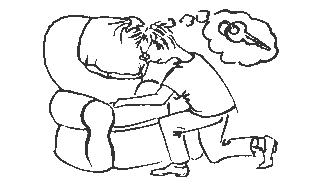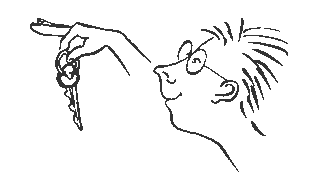Unit 13. Present Perfect and Past (1) (I have done and I did)
(настоящее совершенное и простое прошедшее времена 1)
Study this example situation:
|
Ten minutes later:
|
The Present Perfect is a present tense. It always tells us something about now. "Tom has lost his key" = he doesn't have his key now (see Unit 7 Present Perfect (1) (I have done) (настоящее совершенное время 1)).
The Past Simple tells us only about the past. If somebody says "Tom lost his key", we don't know whether he has it now or not. We only know that he lost it at some time in the past.
Two more examples:
- Jack grew a beard but now he has shaved it off. (so he doesn't have a beard now)
- They went out after lunch and they've just come back. (so they are back now)
- The Chinese invented printing. (not have invented)
- How many plays did Shakespeare write? (not has Shakespeare written)
- Beethoven was a great composer. (not has been)
- Shakespeare wrote many plays.
- My sister is a writer. She has written many books. (she still writes books)
(настоящее совершенное время 1)). But if we continue to talk about it, we normally use the Past Simple:
- A: Ow! I've burnt myself.
B: How did you do that? (not have you done)
A: I picked up a hot dish. (not have picked)
- A: Look! Somebody has spilt milk on the carpet.
B: Well, it wasn't me. I didn't do it. (not hasn't been… haven't done)
A: I wonder who it was then. (not who it has been)
(простое прошедшее время).
See Unit 7. Present Perfect (1) (I have done)
(настоящее совершенное время 1).
See Unit 8. Present Perfect (2) (I have done)
(настоящее совершенное время 2).
See Unit 14. Present Perfect and Past (2) (I have done and I did)
(настоящее совершенное и простое прошедшее времена 2).
See Appendix 7. American English
(американский диалект). хостинг для сайтов © Langust Agency 1999-2024, ссылка на сайт обязательна
![агентство Лангуст [переход на главную] Агентство Лангуст [переход на главную]](/pic/logo.gif)



